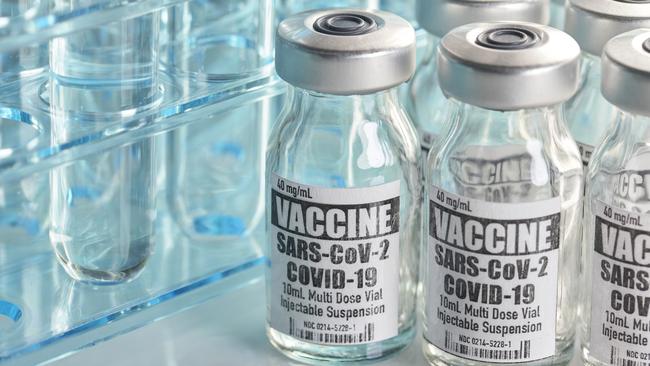Coronavirus: Melbourne hotspots on radar for vaccine tests
Residents living in coronavirus hotspots in Melbourne may be targeted for human trials of an Australian vaccine.

Residents living in coronavirus hotspots in Melbourne may be targeted for human trials of an Australian vaccine in an experimental plan being drawn up by an Adelaide scientist.
A COVID-19 vaccine developed by Flinders University professor Nikolai Petrovsky last week became the first Australian candidate to enter phase 1 human trials.
Professor Petrovsky, the founder of the South Australian biotech Vaxine, wants to conduct the next phase of human trials in Victorian outbreak hotspots.
“What we’re proposing is that if a vaccine is available that has passed initial safety and immunogenicity preliminary testing criteria in humans, that that vaccine could be used in the context of a localised outbreak to see whether that breaks the cycle of virus transmission and actually brings the outbreak to a stop,” Professor Petrovsky said.
“As soon as the phase 1 safety data is available there is no reason that our vaccine could not be used in an experimental setting by Victoria in just such a manner.”
The plan would be conducted as a clinical trial and require stringent ethics approval and the support of the Victorian government.
“It’s no different to us doing a phase 2 study in 400 people — here we’re just doing it on 400 people who are surrounding a localised outbreak,” Professor Petrovsky said. “It’s not in any way bypassing any of the normal safety assessments. So it’s really just a different form of a phase 2 study.”
Kylie Sproston, the chief executive of Bellberry, a not-for-profit group that is the largest reviewer of clinical research in Australia, said ring-fencing strategies using experimental vaccines have been used successfully to control Ebola outbreaks in West Africa.
“What we know is that the Ebola vaccine was developed much faster than vaccines historically and we are looking to take what we learned from that process now,” Ms Sproston said. “It’s not out of the question to think that a ringfencing strategy might be taken here.”
But infectious diseases physician and microbiologist Paul Griffin, a principal investigator with clinical trials company Nucleus Network, cast doubt on the plan.
“I think it’s a great idea, but I think saying that the phase 2 study will be used as an intervention is probably not likely,” Professor Griffin said. “Until we have the phase 2 data, we don’t know that a vaccine is going to protect sufficiently.
“I think certainly once we have phase 2 data for a vaccine, as part of the phase 3 we can look at specific populations, even emergency use provisions, but I think we need at least phase 2 data for that.”
The race for a vaccine is advancing rapidly. Two vaccine candidates — one an inactivated vaccine developed by Chinese company Sinovac, and the other the University of Oxford’s viral vector vaccine — have entered the final phase of human trials.
Nineteen other candidates are in phase 1 or phase 2 human trials.
University of Sydney professor of medical microbiology Jamie Triccas said he was optimistic a successful COVID-19 vaccine would be produced. “I think the signs are encouraging,” Professor Triccas said. “The results that we’re seeing in humans so far looks like the vaccines are making an excellent level of immunity.
“I think we’ll have a very good idea if the current vaccines are working before the year is out.
“The big issue will be manufacture. But the thing that is unprecedented for COVID-19 is that as these vaccines are being tested, they’re also being manufactured.”
China is leading the vaccine race, with five candidates in human trials. Most of the Chinese candidates are inactivated vaccines, where killed or weakened virus that retains its structure is injected and then elicits an immune response.
The University of Queensland’s protein subunit vaccine is expected to enter phase 1 human trials this month. There are also a number of DNA and RNA vaccine candidates that have entered human trials.








To join the conversation, please log in. Don't have an account? Register
Join the conversation, you are commenting as Logout